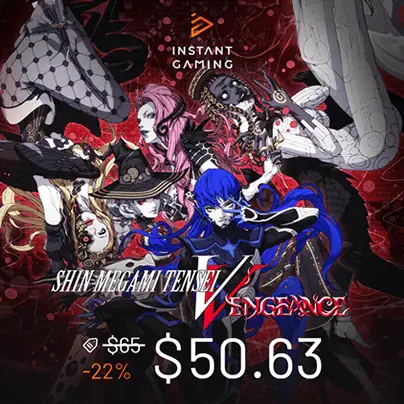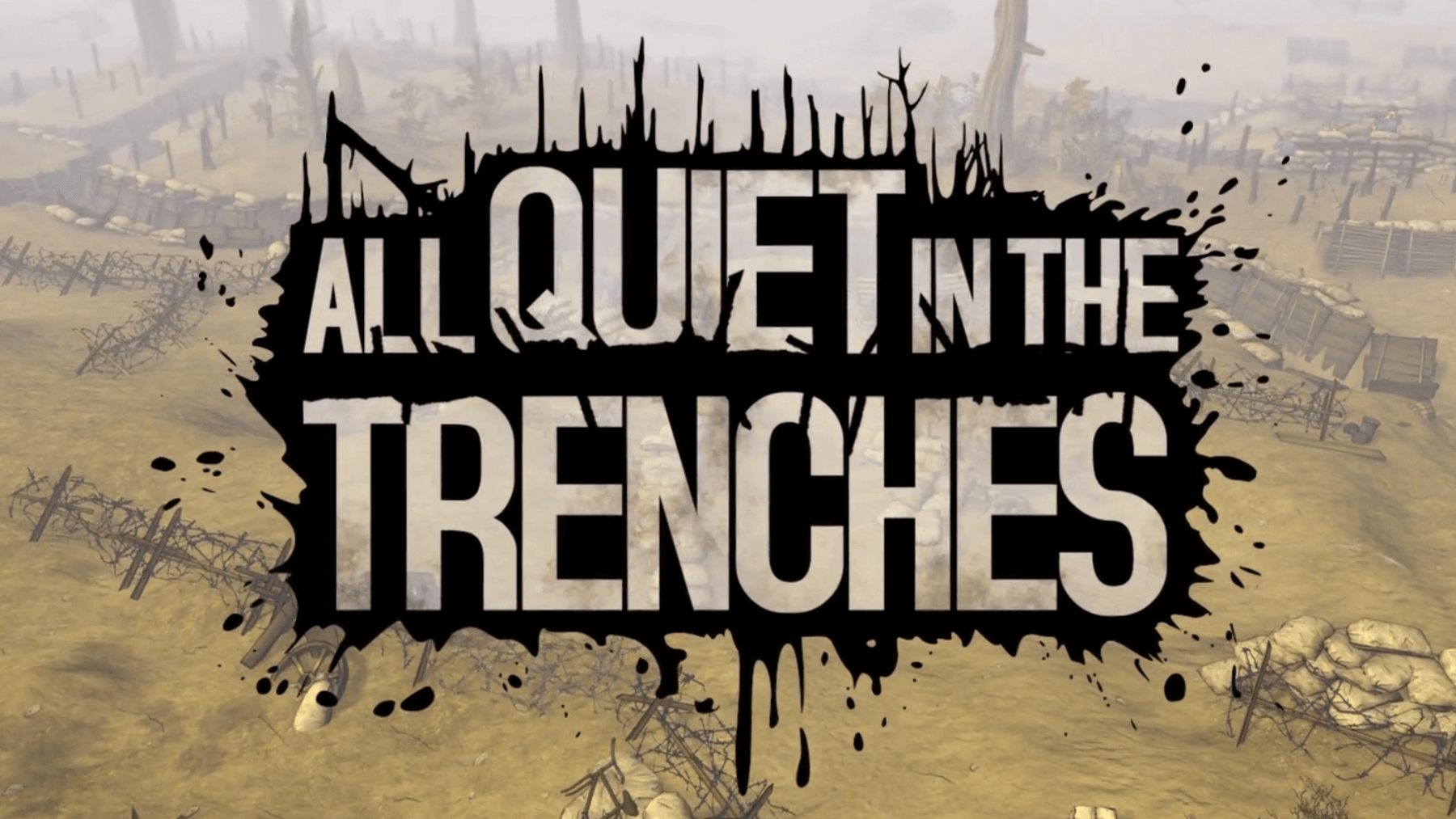All Quiet in the Trenches is a narrative turn-based strategy game set in World War I. Get to know your soldiers, take care of their needs, and lead them in battle, trying to strike a precarious balance between the ambitions of your superiors and the survival of your men.
Welcome to a special edition of 10 Turns Interview where we delve into the intricate world of gaming narratives and strategy. Today, we’re honored to have a unique opportunity to explore the trenches of digital warfare with Totally Not Aliens, the creators of the critically acclaimed turn-based strategy game, All Quiet in the Trenches. The game, set to be released on 17 January 2024, puts players against the grim backdrop of World War I and offers a deep narrative, strategic gameplay, and a poignant portrayal of a soldier’s life in the trenches.
As we sit down with the minds behind this immersive experience, we aim to uncover the inspirations, challenges, and creative processes that went into crafting a game that’s not just about warfare but about the human stories intertwined within it. From the drawing board to the digital battlefield, join us as we journey into the heart of All Quiet in the Trenches.
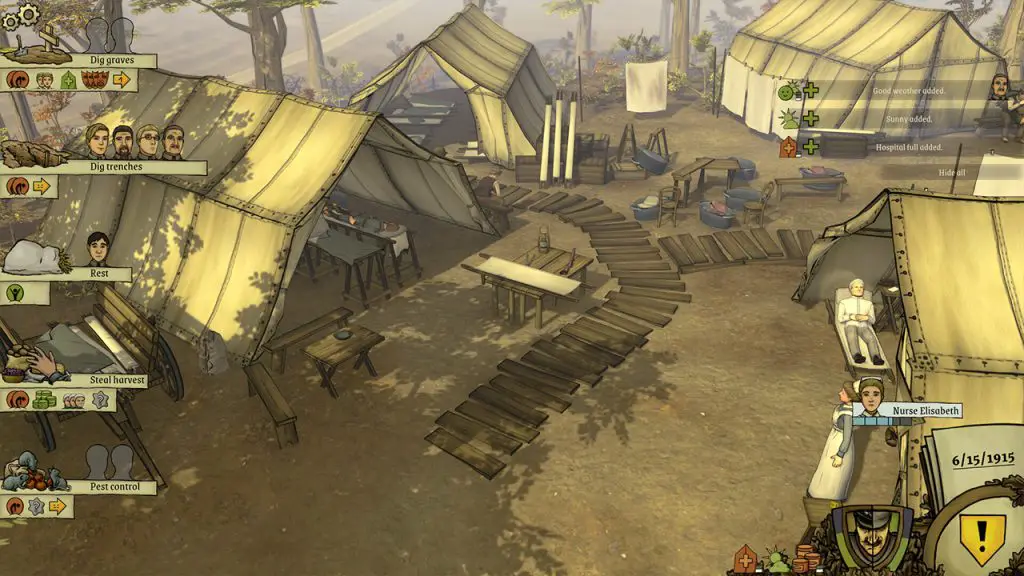
First Turn
All of my squad mates had distinctive personalities that made them stand out and easy to identify, as well as making it a hassle to try and manage. Was there any inspiration for the various characters in the game, whether from other media or even real accounts?
Many of the characters in our game were written by freelance author Felicitas Pommerening. She and other writers did a lot of research on WW1 in general, literature, and field diaries. This research was the basis for our characters, but we also took some freedom in developing them to offer a great variety of personalities social and cultural backgrounds. The approach for most characters was to take something of the era – a societal issue, a historical fact, or even simply a specific region – that we wanted to tell people about and build a character around it.
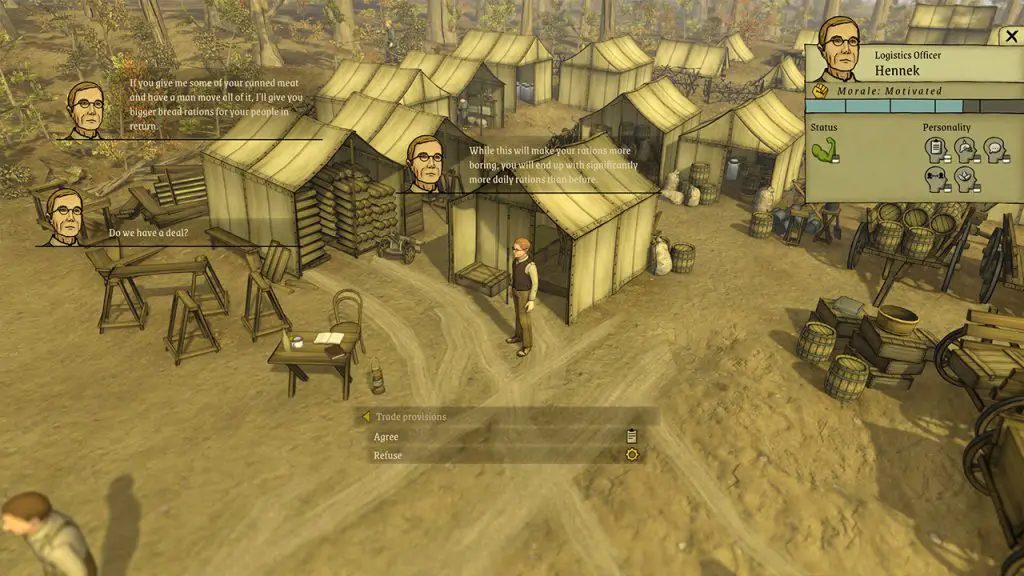
Second Turn
How is your studio conducting its research to make the setting as authentic as possible? Do you have everyone contributing to the research, or do you have specialists on your team to help with that area, given how small your team is?
All members of our team are responsible for their own research. We then have a workflow where we share all our research findings that are of interest to everyone with the whole team. We also got some help from the Department of General Psychology and Methodology at the University of Bamberg, who helped us understand how it feels to be a soldier in such a long war and how that changes over time.
Third Turn
What important events or battles can players expect to live through during their time in the trenches?
Because All Quiet in the Trenches is designed to show what life was like for an individual soldier during WW1, who most likely wasn’t involved in specific historical events, you will generally not participate in any specific historical battle or event – you will not fight at Verdun, at Passchendaele and certainly not the Battle of Jutland – but you will hear of it. You will feel the consequences of a tightening British sea blockade and dwindling supplies. You will experience the increasing lethality of weapons and tactics. And you will be there when your soldiers receive word of fallen loved ones at those battles.
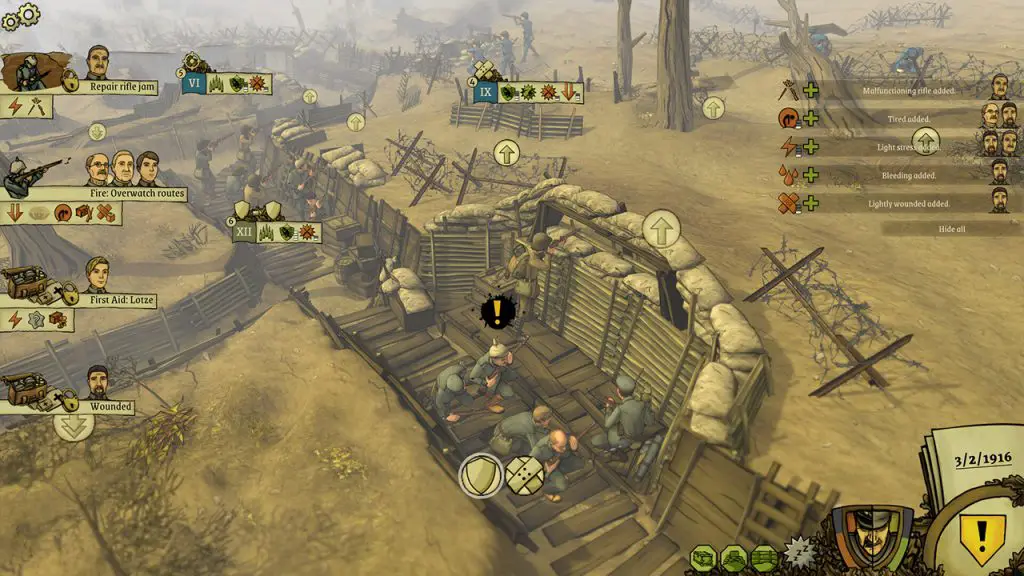
Fourth Turn
How did you come to receive funding from the Federal Ministry of Transport and Digital Transportation? What was the initial pitch, and were you nervous when you applied?
The Federal Ministry of Transport and Digital Infrastructure has a games funding program that is meant for the entire games industry in Germany. It’s an economic funding program, which means that the ministry has no influence on the content and development of the game. It’s quite important for companies like us that we have programs like this one, which was actually completely new in 2019. Without this funding, we wouldn’t have been able to develop a niche game like All Quiet in the Trenches with so much time and effort. There was no pitch required, just a description of the project and a financial and workflow plan for the time of funding, so we had no reason to be nervous. 🙂
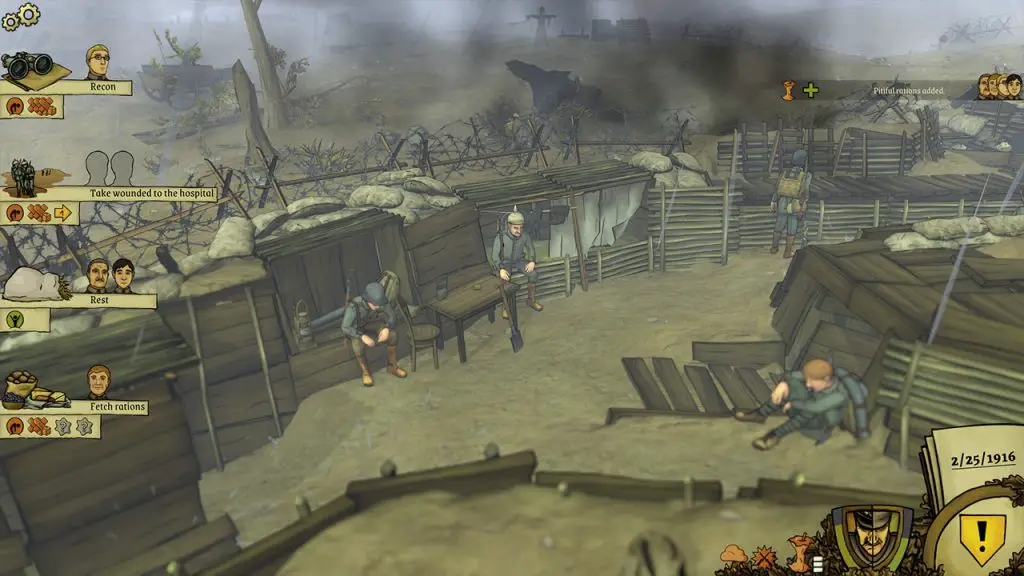
Fifth Turn
How did your studio initially come together? Was “All Quiet in the Trenches” conceived before or after the studio’s culmination?
My partner Alex and I started the company with game designer Julian, a friend of ours. We all had experience with making games in other companies and wanted to be able to develop deeper stories and innovative mechanics that would be too risky for most larger companies. So, we decided to start our own company before we even had an idea of what game we were going to make. We then collected a number of ideas before settling on “All Quiet in the Trenches,” inspired by the back then upcoming centenary of the armistice.

Sixth Turn
Why did your studio choose to tell a story set in WW1 from the German perspective? What about this period drew you to tell this story?
WW1, we thought, was quite underrepresented in the media when we started developing All Quiet in the Trenches in 2017, given how essential it is to understand the rest of 20th-century history, especially German history. We wanted to build on the societal memory of senselessness already well established in poetry, books, and movies about the war and do the same for games. To tell a war story that wasn’t about winning or being a hero, that didn’t glorify war, but instead showed what it felt like for an ordinary soldier to be in a war situation: Make tough decisions where there was no easy answer, with an arbitrary, meaningless death always looming.
WW1’s trench warfare perfectly encapsulates this feeling of stagnation, where you are forced to stay in almost the same place and fight, bleed, and die for the same few meters of mud over and over again. “All Quiet on the Western Front” was one of our main inspirations for the game. This, and the fact that we are Germans ourselves, which means that German history and cultural aspects are more accessible and understandable to us, has led us to show WW1 from the perspective of a German soldier.
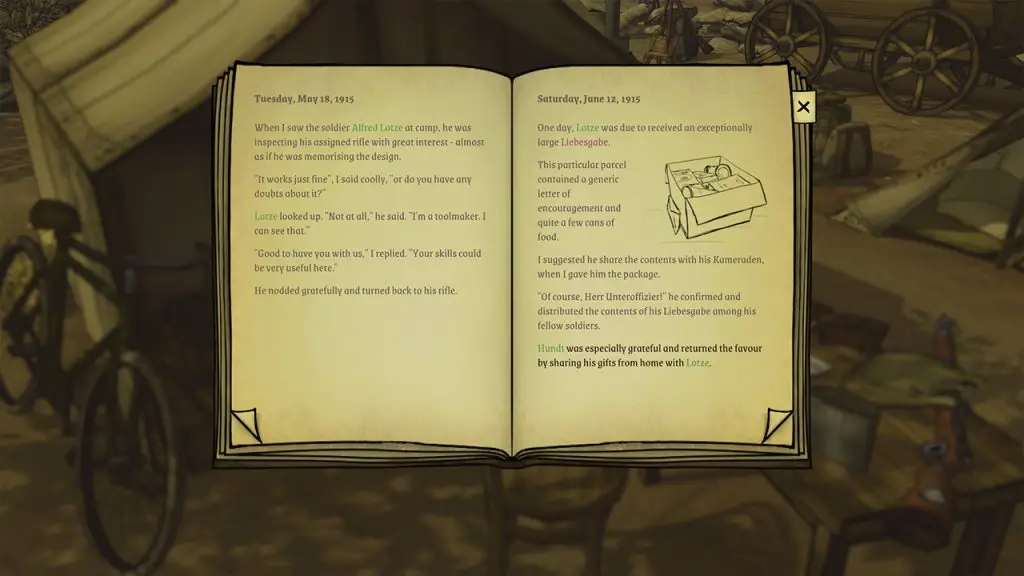
Seventh Turn
What’s been something that shocked you during research for your game?
There were many things that shocked us during the research: The de-individualization of people from other nations as well as specific social groups such as prostitutes, how many historical records of the anti-war movement at the end of WW1 were lost in Nazi Germany, which means that the culture of remembrance of WW1 in Germany is significantly lower than in neighboring countries, and the horrific medical situations and practices during the war, to name just a few.
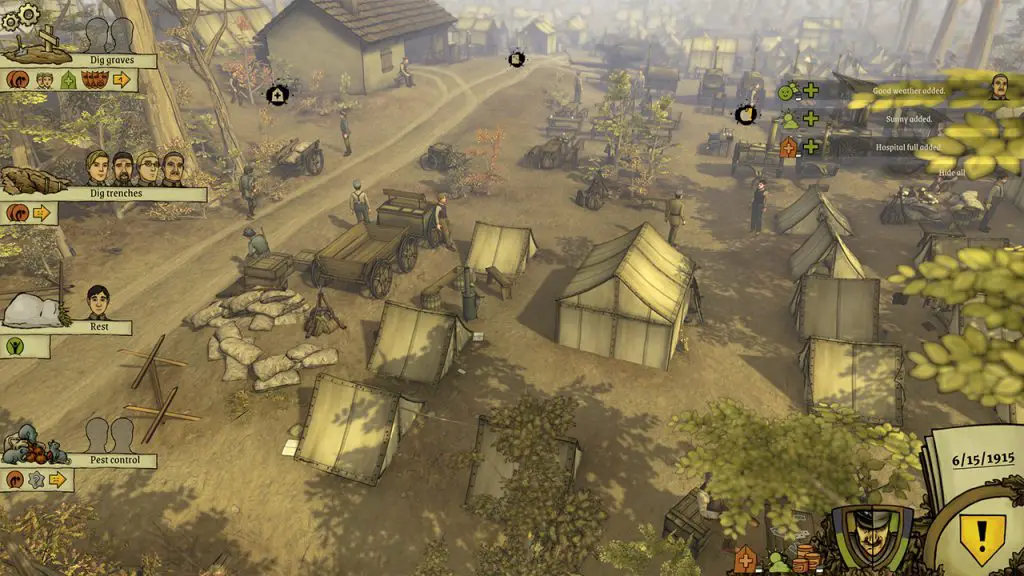
Eighth Turn
The game takes place in 1915. Was there something about this particular year that you
wanted to set the beginning of your story in?
We want the game to allow the player to experience a long period of war, in our case, 1915 to 1918. We excluded 1914 because the beginning of the war was too different from the later years. There was a fast progression a lot of movement, and trenches were not built on a large scale until the end of the year. We, therefore, begin our game in the spring of 1915, with the protagonist being sent to the front. We want players to empathize with him in the situation of being thrown into a war that has been going on for some time and having to find their way around and fulfill their tasks without losing themselves.
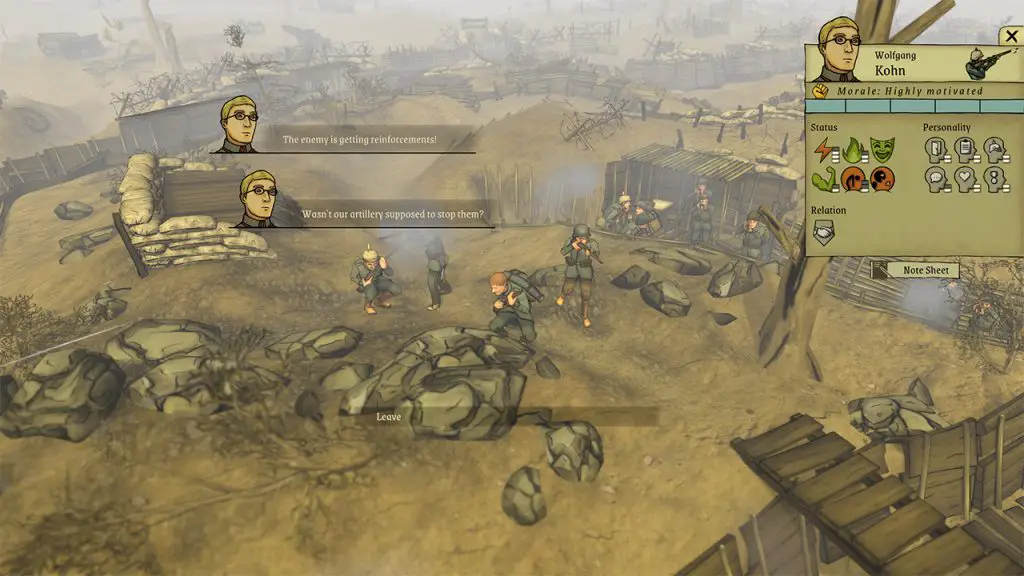
Ninth Turn
The game tries to simulate many aspects of a soldier’s life, from struggling with rations, insubordination, and even maintaining relationships with the local villagers. What was important to you when deciding what aspects to keep in the game and which ones to cut?
With All Quiet in the Trenches, we want to show the senselessness of war as experienced by a single soldier, with the clear aim of counteracting the romanticization and heroization of war. All the features of the game are subject to this goal.
That means, for example, that combat couldn’t be the main gameplay. Its justification to exist at all is to personalize your soldiers even more by showing how they deal with the horrors of war, to provide danger to them as well as potential for conflict with your superiors. We tried to design battles as something to fear instead of something to giddily look forward to.
It also means the main gameplay would be outside of combat. As the New York Times quoted an unknown source in 1915, the war was “Months of boredom punctuated by moments of terror.” The challenge here was to show this calm and potentially even boredom of the soldiers, while not ending up with boring gameplay. So we use these moments of calm between the storms to allow you to truly get to know your soldiers, to have to interact with them on a level that goes beyond simply yelling orders, where you have to face the consequences for how you treated them – or for what happened to them under your command.
We wanted to show a different part of war, a new perspective, one arguably closer to the actual experience of soldiers. One that involves digging latrines, managing rations, and standing guard. All of it is bound together by the threat of the next battle looming ahead – and you, desperately trying to make sure your soldiers will be ready for it because that’s all you can do.
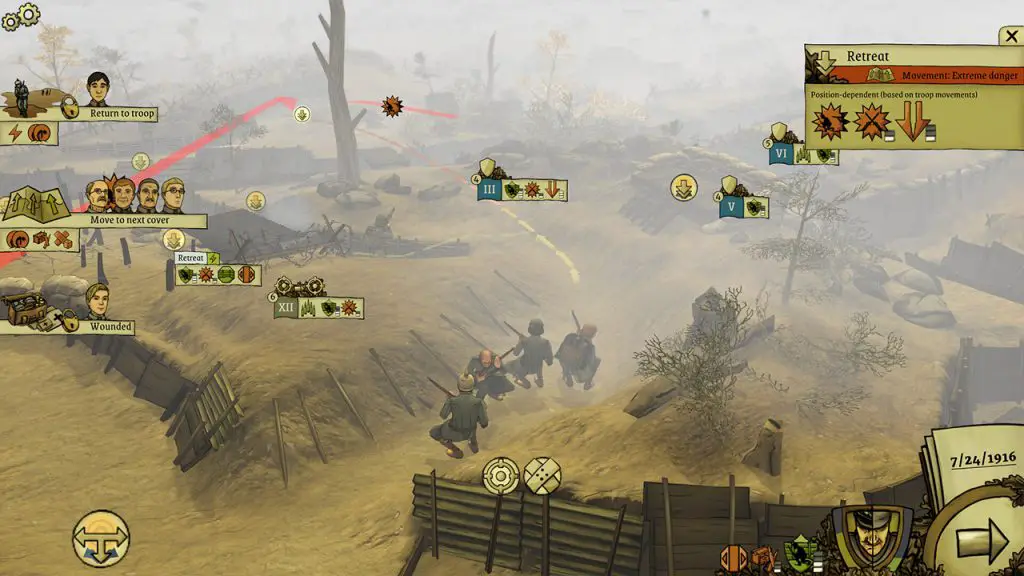
Tenth Turn
What’s the biggest takeaway you hope players learn after playing your game? What’s the biggest impression you want to leave them?
Understand what war truly means. And understand what this specific war meant for history so we won’t repeat it or what came after.
Bonus Turn
What’s your favorite piece of media set in WWI? For me, it was either “All Quiet on the Western Front, for its depiction of loss of innocence, or the much lesser known “In the Company of Eagles”, which captures the day to day, compounding the stressors and terrors of the war as the war grows longer, and the effects it has on it’s soldiers.
“All Quiet on the Western Front” was one of the most impressive media sets of WW1 for us as well. We were very moved by Wilfred Owen’s poems, especially “Insensibility”. Talking about lesser-known media, we also want to highlight Edlef Köppen’s “Heeresbericht,” a book that is rarely discussed today and that was also a victim of book burning during Nazi Germany and the rather unknown film “Le Pantalon,” which is based on the true case of Lucien Bersot.

